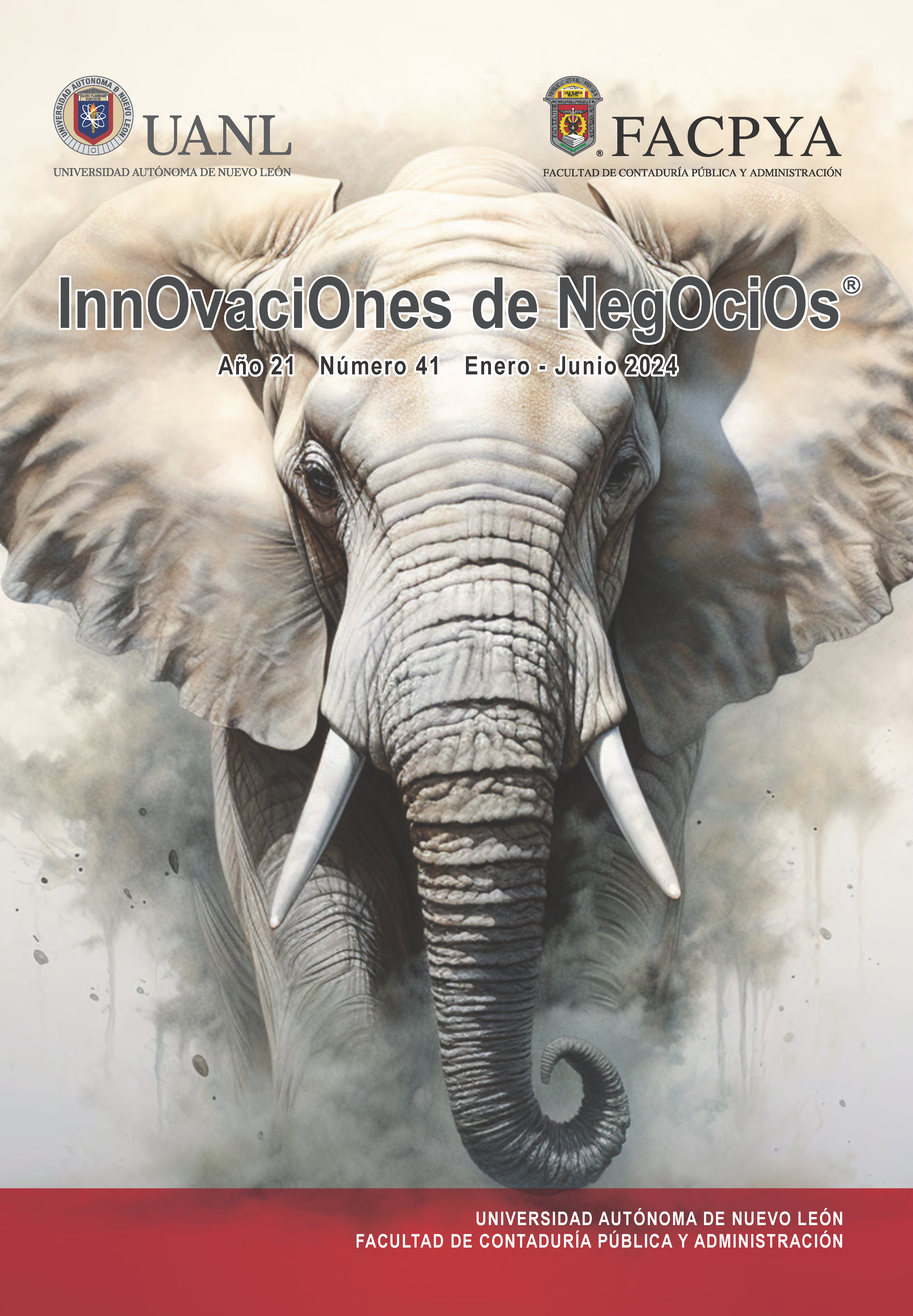Acquisition of Vouchers that Cover Simulated or non-Existent Operations and Their Legal, Fiscal and Criminal Consequences on Taxpayers: A Contextual Approach to the Problem
DOI:
https://doi.org/10.29105/revin21.41-438Keywords:
ephis, edos, Tax evasion, Simulated operations, ConsequencesAbstract
The objective of this research work is to demonstrate, through a contextual approach, the problem of the acquisition of vouchers that cover simulated or non-existent operations and their legal, fiscal and criminal consequences on taxpayers. The approach is qualitative descriptive. To achieve the objective, the problem and an interpretative analysis were addressed from a theoretical perspective, seeking to answer the question: Can the authority confiscate my assets according to the National Law of Asset Forfeiture? The purpose of this study is not to test whether or not a hypothesis is rejected, but to generate empirical knowledge as a result of the method. The information was obtained through the list of taxpayers published by the Tax Administration Service, updated as of May 31, 2023. The result was a total of 12,675 companies that represent 50% of the taxpayer list, of which 1,329 companies have a judgment. favorable that shows 5%, that is, that they filed a means of defense, likewise, 143 companies are presumed, which expresses 1%, so they will have to distort the facts. It is concluded that the magnitude of the problem continues through simulated operations. What is worrisome is that as of May 31, 2023, 10,878 are definitive companies that constitute 43%, that is, they failed to distort the facts that they are accused of in accordance with the term established in article 69-B of the Fiscal Code of the Federation in force.
Downloads
References
Allingham, M. G. y Sandmo A. (1972). “Income tax evasion: A theoretical analysis”. Journal of Public Economics, vol 1, pp 323-338. https://doi.org/10.1016/0047-2727(72)90010-2 DOI: https://doi.org/10.1016/0047-2727(72)90010-2
Código Civil para el Distrito Federal. Última reforma 02-03-2021 recuperado de: https://www.congresocdmx.gob.mx/media/documentos/ad63a5bd2aef33e50ef1ed68d82450cf368578c0.pdf
Código Fiscal de La Federación CFF. Vigente. Estados Unidos Mexicanos, Cámara de Diputados del H. Congreso de La Unión, Secretaría General, Secretaría de Servicios Parlamentarios, Centro de Documentación, Información y Análisis (2019).
Código Fiscal de la Federación, publicado en el Diario Oficial de la Federación. Recuperado de: http://gaceta.diputados.gob.mx/
Código Fiscal de la Federación. [en línea]. México, D.F. Última Reforma DOF 30-01-2007. [Fecha de consulta: 05 julio 2023]. Disponible en: http://www.diputados.gob.mx/leyinfo/pdf/8.pdf
Constitución Política de los Estados Unidos Mexicanos. Vigente. Última reforma DOF-06-06-2023 recuperado de: https://www.diputados.gob.mx/LeyesBiblio/pdf/CPEUM.pdf
Daza, M. A., Sánchez, A. y Leaños, S. (2019). Ética de lo fiscal y su aplicación práctica. Thompson.
Flores Zavala, Ernesto. “Elementos de Finanzas Públicas Mexicanas”, 13ª ed. Porrúa, México, 2004
Folco, Carlos María, “El fenómeno de la evasión fiscal”, en Calos María Folco, Sandro F. Abraldes y Javier López Biscayart, Ilícitos Fiscales. Asociación ilícita en materia tributaria, Rubinzal – Culzoni Editores, Buenos Aires, 2004, p. 17.
González, F (2002) Derecho Fiscal Mexicano, pag. 242 en Arrioja Vizcaíno, A., Derecho Fiscal, Ed. Themis, México, Sep.1998, p.488.
Jarach, D. (1982). El Hecho Imponible: Teoría General del Derecho Tributario Sustantivo. Buenos Aires, Argentina: Abeledo- Perrot.
Macon, J (1987). Medida de la evasión, economía no registrada. En: Publicaciones del INDEC, Buenos Aires Argentina, julio.
Prodecon, “Presunción de inexistencia de operaciones amparadas en CFDI”, Procuraduría De La Defensa del Contribuyente, México, 2020.
Servicio de Administración Tributaria: recuperado el día 05 de julio de 2023 http://omawww.sat.gob.mx/cifras_sat/Paginas/datos/vinculo.html?page=ListCompleta69B.html
Tacchi C. (1993, noviembre). Concepto de Elusión y de evasión Tributarias y sus efectos sobre la aplicación del Sistema Tributario. Trabajo presentado en Conferencia del Centro Interamericano de Administraciones Tributarias, Venecia, Italia.
Villegas, H., Arguello Vélez, G., & Spila Jarcia, R. (1993). La evasión fiscal en Argentina. Revista de Derecho Fiscal No XXIII – Pág. 337.
Downloads
Published
How to Cite
Issue
Section
License
Copyright (c) 2023 Noe Francisco Rico Martínez, Alfonso Hernández Campos, Juan Paura García, Paula Villalpando Cadena

This work is licensed under a Creative Commons Attribution-NonCommercial-ShareAlike 4.0 International License.
The InnOvaciOnes de NegOciOs magazine is a free and open access electronic magazine of a scientific-academic nature and is a publication of the Autonomous University of Nuevo León, in which the authors retain their copyright and grant the magazine the exclusive right to first publication of the work. Third parties are allowed to use the published content, as long as the authorship of the work is acknowledged and the first publication in this journal is cited.
For more information, please contact the Research Secretary (FACPyA) of the Autonomous University of Nuevo León. Telephone: (81) 1340-4430. Email: revinnova@uanl.mx










